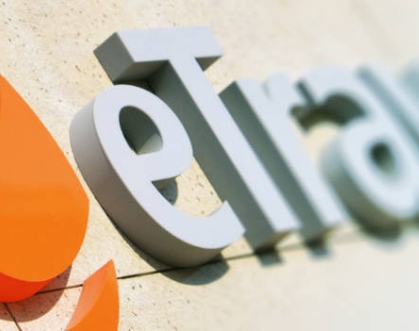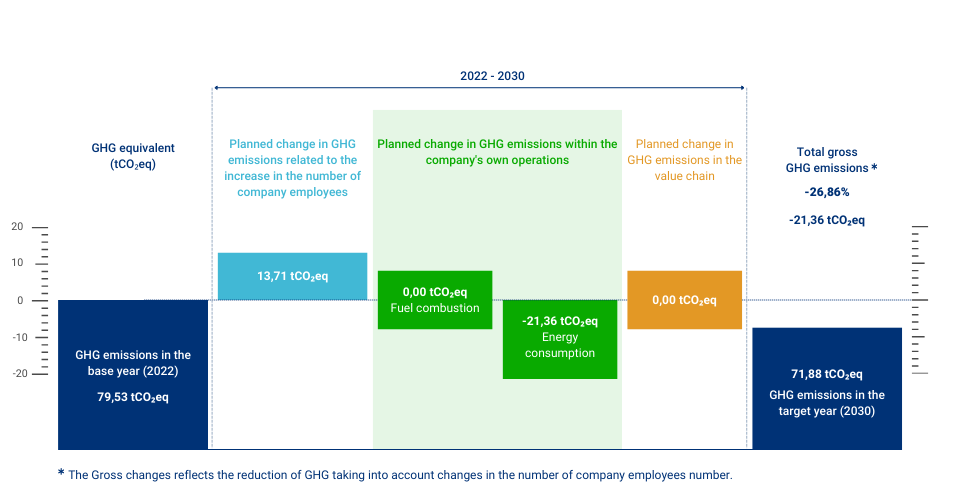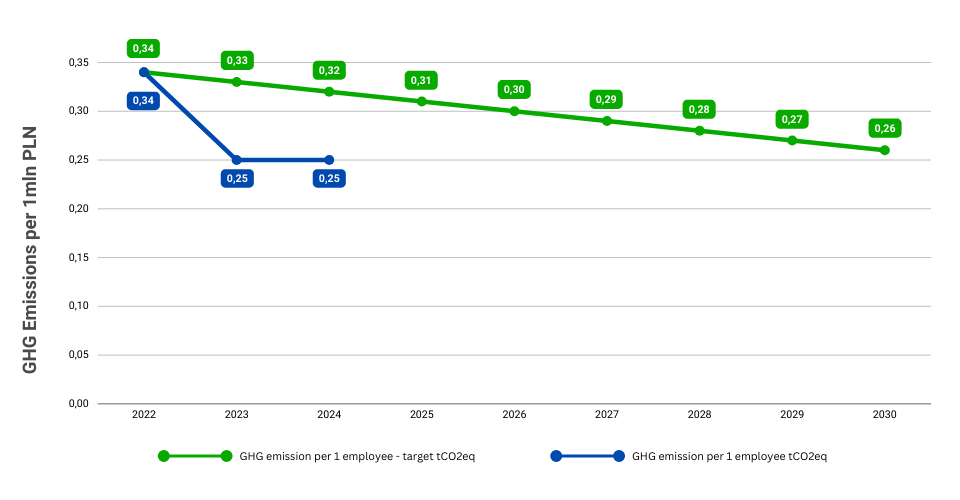Company profile
The business activities of the eTravel capital group companies involve acting as intermediaries in the sale of travel services to corporate and individual clients. This means that the organization's environmental impact is relatively low. It is primarily limited to the consumption of basic utilities and consumables required for office operations, particularly energy, water, detergents, paper, and fuel.
However, the company is taking measures aimed at assessing its own carbon footprint and has established greenhouse gas (GHG) emission targets for the coming years.








